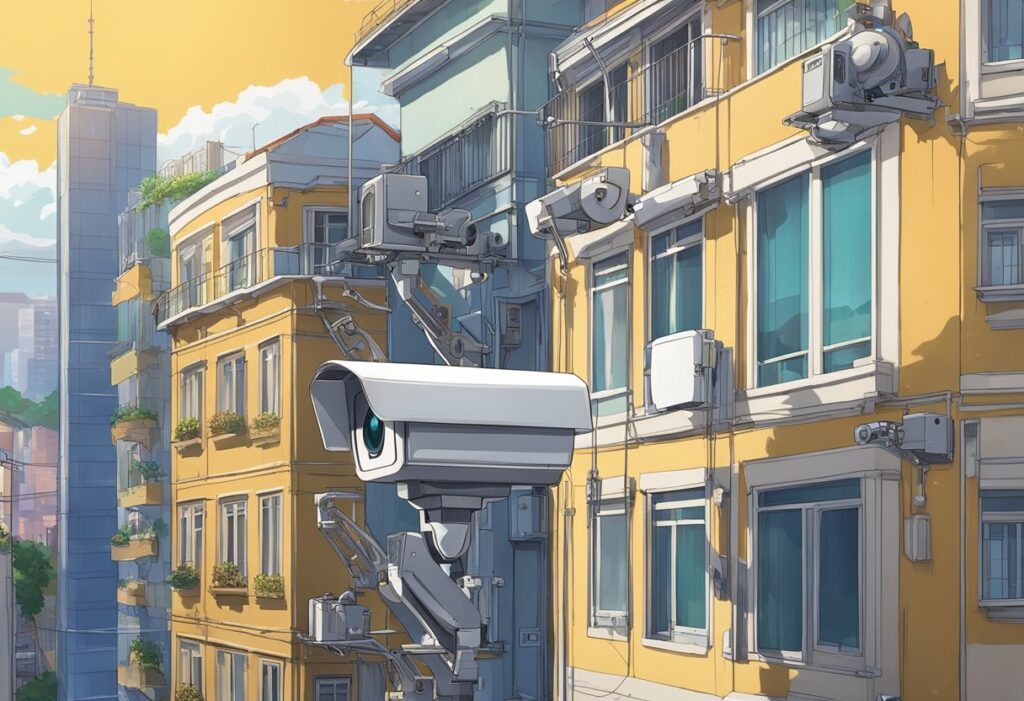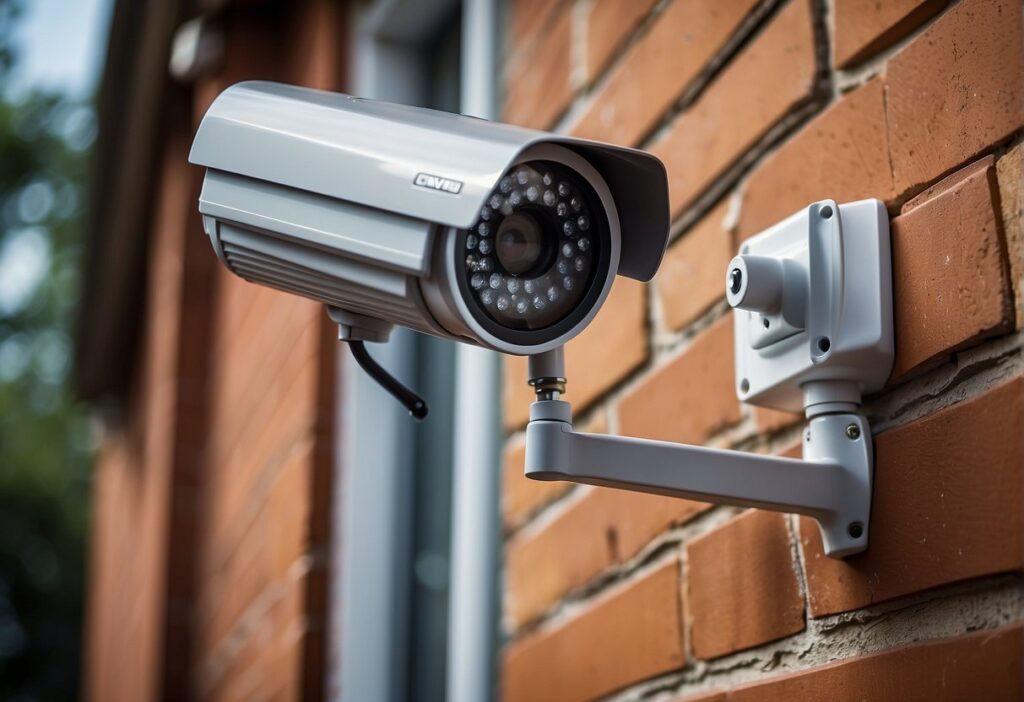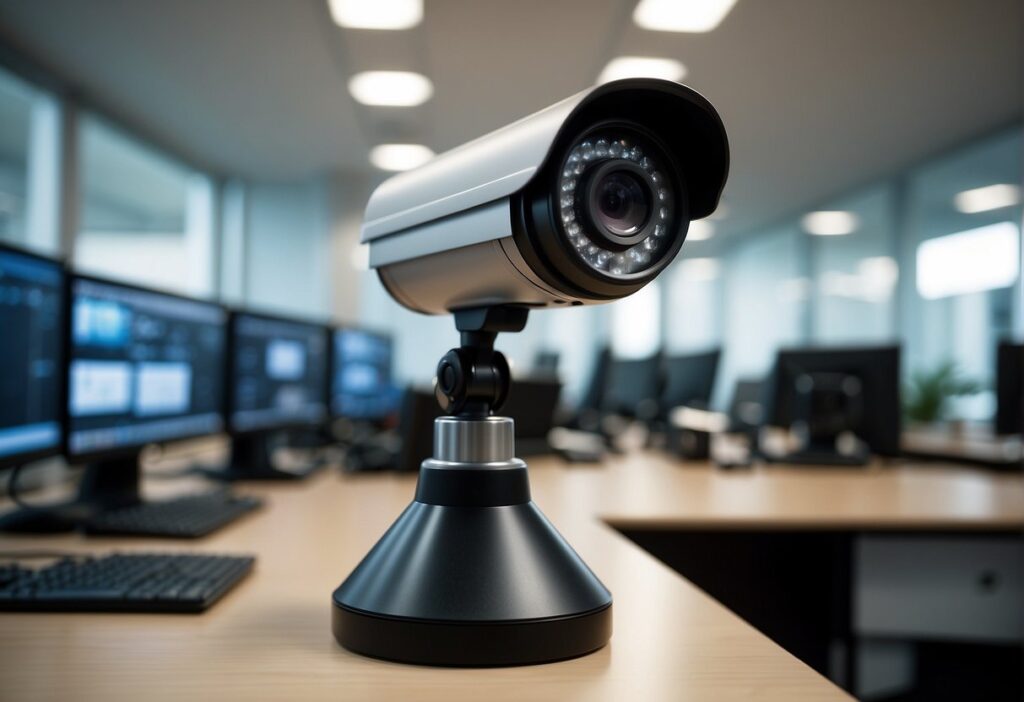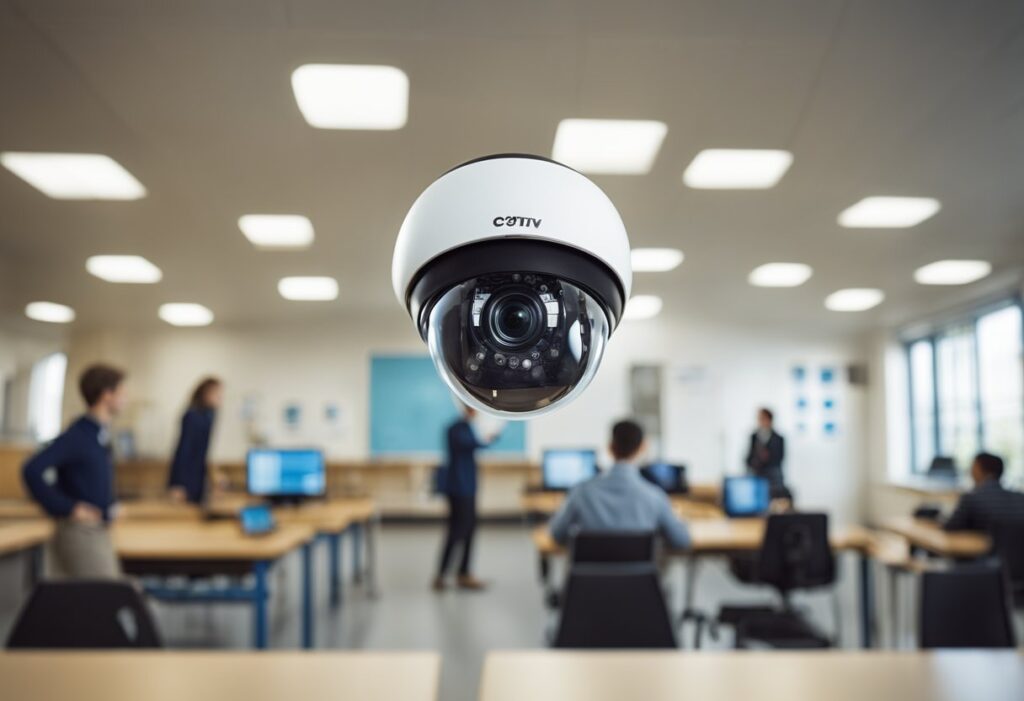CCTV Its Importance and Benefits
Closed-circuit Television (CCTV) is a crucial component of modern security systems, essential for monitoring activities, preventing crime, and documenting events in both private and public spaces.
Its recent technological advancements, including improved image quality, motion detection, and remote access, have made CCTV an indispensable tool for safety in businesses and homes.
Key Takeaways
- CCTV is pivotal for security and crime deterrence.
- Technological advancements have expanded CCTV capabilities.
- Businesses leverage CCTV for asset protection and safety assurance.
The Role of CCTV in Modern Security

Closed-circuit television (CCTV) systems play a crucial part in today’s security strategies, providing watchful eyes where humans cannot be present at all times.
Crime Prevention and Deterrence
CCTV cameras are well recognized for their role in crime deterrence. The presence of cameras in public places or around private properties alerts would-be criminals that their actions are being watched, making them think twice before committing a crime.
This proactive approach to security helps in maintaining public safety and safeguarding assets. A study revealed that crime rates dropped by approximately 16% in areas where surveillance cameras were installed, showcasing the substantial impact of visible security measures.
Real-Time Monitoring and Response
With the advent of digital technology, CCTV now enables real-time monitoring of situations as they unfold. Full-time surveillance allows security personnel to react swiftly to any suspicious activities, providing a live feed that can be crucial in the moment of crisis.
Immediate response can be coordinated, whether that be alerting local authorities or dispatching security teams to handle incidents. This level of vigilance ensures that not only is crime prevented, but the potential damage is minimized through prompt intervention.
Evidence Collection and Legal Accountability
In instances where a crime occurs, CCTV cameras serve a vital role in evidence collection. Video recordings can be used in legal scenarios to establish accountability and can often provide irrefutable evidence in courts, leading to higher conviction rates.
Accurate and comprehensive visuals captured by CCTV systems bolster the legal process, providing clear events’ sequencing that helps in delivering justice. In some cases, the footage collected has helped exonerate individuals wrongly accused of crimes, underscoring the important balance these systems provide between security and legal fairness.
CCTV technology interacts with other aspects of security systems, enhancing overall safety measures as detailed in discussions on the importance of security systems. These interconnected systems underscore the value that CCTV brings to modern security by reinforcing other defensive layers.
Benefits of CCTV for Businesses and Commercial Property

Security systems, especially CCTV, play a pivotal role in safeguarding commercial properties. They not only provide a visual deterrent to potential threats but also enhance the overall safety of businesses.
Protection Against Theft and Vandalism
In the realm of commercial security, CCTV systems stand as a formidable barrier against theft and vandalism. A visible network of cameras can make burglars think twice before targeting a business.
For example, studies have shown that businesses are up to four times more likely to be burglarized than homes, indicating the high value of protecting commercial assets. By placing security cameras strategically around sensitive areas, businesses can significantly reduce the incidence of criminal activities.
Employee and Customer Safety
The presence of CCTV systems not only discourages ill-intentioned acts but also fosters a sense of safety amongst employees and customers. Video surveillance ensures that employees adhere to safety protocols, reducing workplace accidents.
Should an incident occur, camera footage provides an invaluable record for post-event analysis. Furthermore, customers are more likely to frequent businesses where they feel secure, thereby empowering businesses to cultivate a reputation for prioritizing safety.
Advancements in CCTV Technology

Recent years have seen significant advances in CCTV technology, enhancing both the clarity and functionality of surveillance systems. These innovations have elevated video surveillance from basic security measures to comprehensive digital security systems.
Innovations in Camera Resolution and Quality
The evolution of camera technology has greatly improved the resolution and quality of CCTV systems. Modern CCTV cameras have evolved from standard-definition analog models to high-definition digital formats, with resolution capabilities now reaching 4K and higher.
These cameras provide sharper images, which are crucial for the identification of individuals and the analysis of incidents. For example, the transition to IP cameras facilitates not just better image quality but also sophisticated features like night vision and motion detection.
These features enable cameras to capture clear footage in low-light conditions and to respond proactively to movement, offering a more robust video surveillance system.
Integration with Digital Security Systems
CCTV technology now seamlessly integrates with other components of digital security systems. This integration empowers security professionals to manage multiple systems from a central location.
For instance, today’s CCTV systems can be connected to wireless networks, providing the flexibility to remotely access live feeds and recordings from any location. The convergence of CCTV systems with Internet Protocol (IP) has also made it possible to receive automatic event responses and real-time service outputs, as seen in the use of cutting-edge technologies facilitated by such integration.
These advancements result in a more efficient allocation of security resources and a faster reaction to potential security breaches, thus strengthening surveillance capabilities across various settings.
Considerations for CCTV Installation

When planning the installation of a CCTV system, certain considerations are paramount for ensuring the system’s effectiveness and efficiency. The process involves identifying potential weak points, balancing cost against system quality, and optimizing camera placement for clear and useful footage.
Identifying Vulnerable Areas
The first step is to determine vulnerable areas around the property. These are points of entry such as doors and windows, and secluded locations that might be attractive to intruders.
For example, a study revealed that 22% of burglars enter through the back door, making it a critical area for camera coverage.
Evaluating Cost and Quality
Investing in a CCTV system involves evaluating both cost and quality to ensure the investment is valuable in the long term. While lower-cost cameras may seem appealing, they might not provide the resolution or reliability needed for clear identification in security footage.
It is recommended to invest in quality cameras with high-resolution output for more detailed and actionable surveillance.
Ensuring Proper Lighting and Visibility
For CCTV cameras to be effective, proper lighting is essential. Cameras should have infrared capability for low-light situations or be positioned in well-lit areas to prevent footage from being grainy or unclear.
The placement should also offer optimal visibility for key areas, without obstructions, to ensure that the cameras capture useful footage that can serve as evidence if needed.
CCTV Impact on Society

Closed Circuit Television (CCTV) systems play a pivotal role in the surveillance and safety of public areas, having a significant influence on both public safety and privacy concerns. Through the utilization of surveillance cameras, societies can detect and reduce criminal activity, while also engaging in important debates about civil liberties.
Public Area Surveillance and Safety
Public places including parks, streets, and public buildings often deploy CCTV as a method to enhance security and ensure the safety of individuals. Cameras act as a deterrent for crimes like theft or vandalism and can provide valuable evidence in case criminal activity occurs.
For instance, surveillance footage helped identify suspects involved in the Boston Marathon bombing in 2013, showing the potency of CCTV in crisis situations. Moreover, CCTV systems are not just used for preventing crime but are also instrumental during emergencies such as floods, fires, or accidents by facilitating a quick response from emergency services and aiding in rescue operations.
Privacy and Civil Liberties Debate
The pervasive presence of surveillance cameras has sparked a debate around privacy and the potential for infringement on civil liberties. While CCTV is crucial for security in public areas, the extent of monitoring raises concerns over the right to privacy.
Activists and privacy experts argue that constant surveillance may create a sense of being under constant watch, potentially altering behaviors and infringing on personal freedoms.
Legislation such as GDPR in Europe has been implemented to regulate the use of surveillance technology, ensuring that the privacy of individuals is not unnecessarily compromised.
Conclusion
CCTV Its Importance and Benefits
CCTV systems hold a pivotal role in modern security measures. They serve as a deterrent to potential criminal activity by increasing the perceived risk of apprehension. When crimes do occur, CCTV footage provides valuable evidence that can aid in investigations and judicial proceedings.
These systems are not just tools for law enforcement; they contribute significantly to the safety of public spaces. Places such as parks, streets, and shopping centers often utilize surveillance cameras to help create a secure environment. This sense of security promotes a feeling of comfort within communities.
Significant advancements in technology have bolstered the efficiency and effectiveness of CCTV. Modern systems are equipped with high-definition video, face recognition, and remote monitoring, which enhances their utility both in real-time surveillance and in extracting insights from recorded footage.
Businesses and homeowners alike recognize the benefits of CCTV, which include not only crime prevention but also operational monitoring and dispute resolution. As the technology continues to evolve, the integration of artificial intelligence could see CCTV systems becoming even more adept at identifying and reacting to potential threats.



